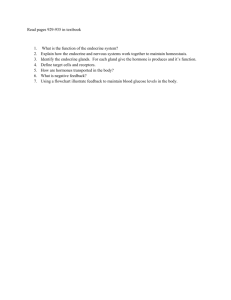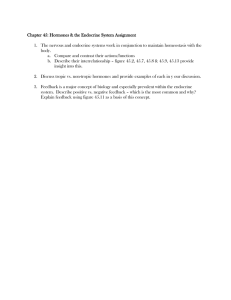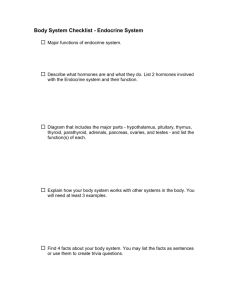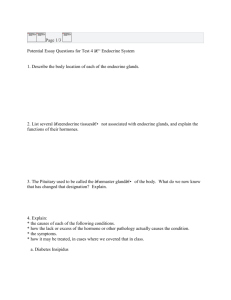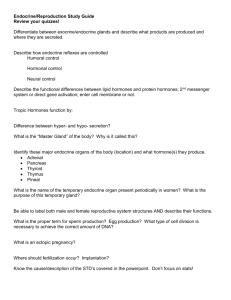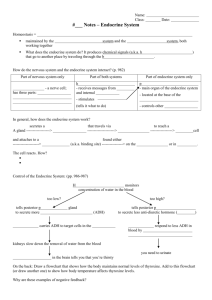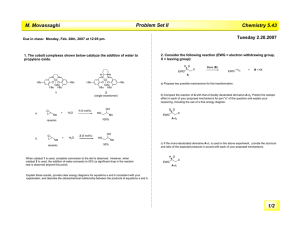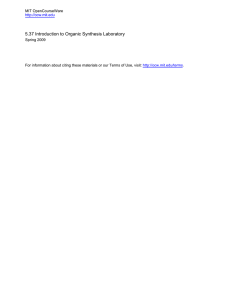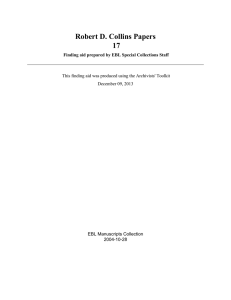Tips for avoiding everyday toxins Cleaning up your personal space: 1)
advertisement
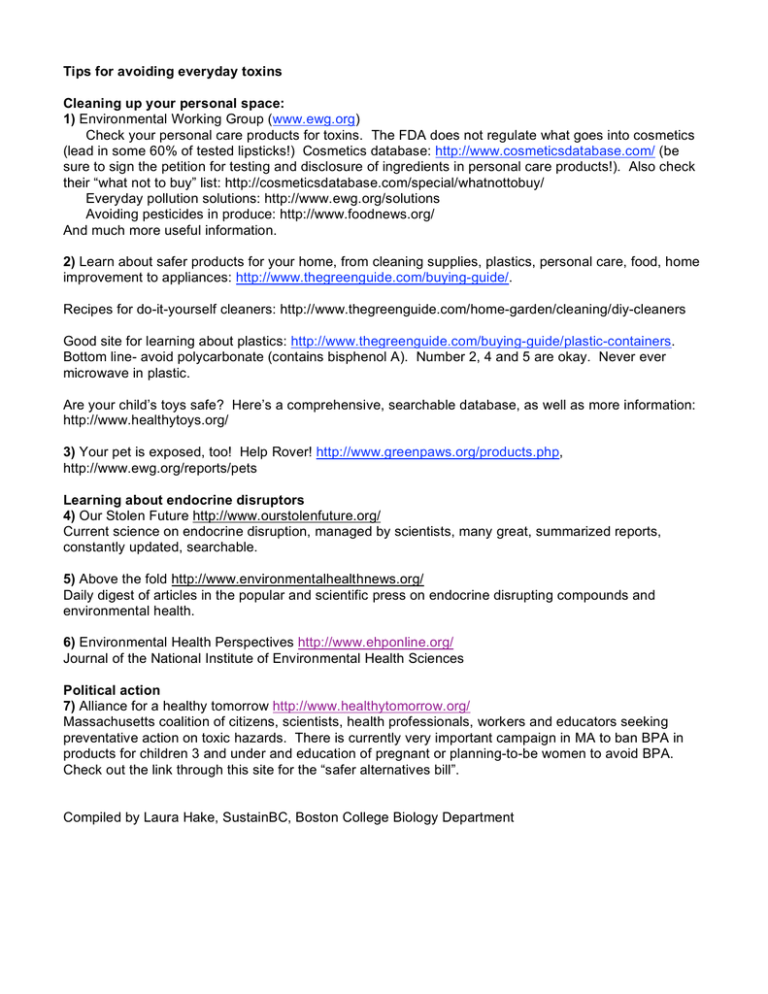
Tips for avoiding everyday toxins Cleaning up your personal space: 1) Environmental Working Group (www.ewg.org) Check your personal care products for toxins. The FDA does not regulate what goes into cosmetics (lead in some 60% of tested lipsticks!) Cosmetics database: http://www.cosmeticsdatabase.com/ (be sure to sign the petition for testing and disclosure of ingredients in personal care products!). Also check their “what not to buy” list: http://cosmeticsdatabase.com/special/whatnottobuy/ Everyday pollution solutions: http://www.ewg.org/solutions Avoiding pesticides in produce: http://www.foodnews.org/ And much more useful information. 2) Learn about safer products for your home, from cleaning supplies, plastics, personal care, food, home improvement to appliances: http://www.thegreenguide.com/buying-guide/. Recipes for do-it-yourself cleaners: http://www.thegreenguide.com/home-garden/cleaning/diy-cleaners Good site for learning about plastics: http://www.thegreenguide.com/buying-guide/plastic-containers. Bottom line- avoid polycarbonate (contains bisphenol A). Number 2, 4 and 5 are okay. Never ever microwave in plastic. Are your child’s toys safe? Here’s a comprehensive, searchable database, as well as more information: http://www.healthytoys.org/ 3) Your pet is exposed, too! Help Rover! http://www.greenpaws.org/products.php, http://www.ewg.org/reports/pets Learning about endocrine disruptors 4) Our Stolen Future http://www.ourstolenfuture.org/ Current science on endocrine disruption, managed by scientists, many great, summarized reports, constantly updated, searchable. 5) Above the fold http://www.environmentalhealthnews.org/ Daily digest of articles in the popular and scientific press on endocrine disrupting compounds and environmental health. 6) Environmental Health Perspectives http://www.ehponline.org/ Journal of the National Institute of Environmental Health Sciences Political action 7) Alliance for a healthy tomorrow http://www.healthytomorrow.org/ Massachusetts coalition of citizens, scientists, health professionals, workers and educators seeking preventative action on toxic hazards. There is currently very important campaign in MA to ban BPA in products for children 3 and under and education of pregnant or planning-to-be women to avoid BPA. Check out the link through this site for the “safer alternatives bill”. Compiled by Laura Hake, SustainBC, Boston College Biology Department
